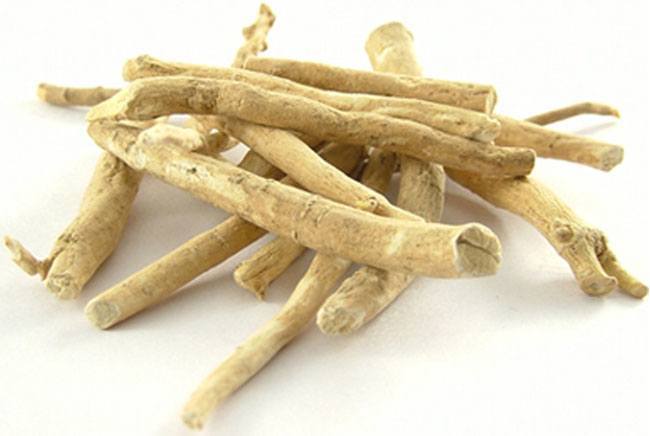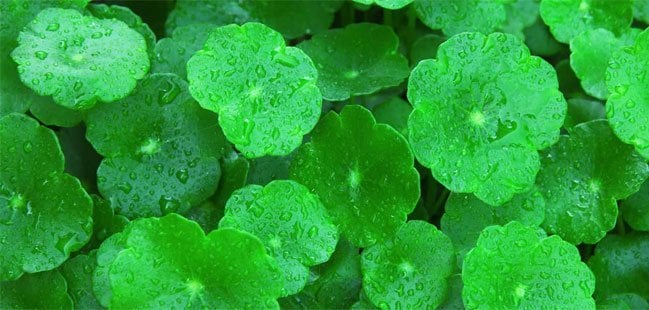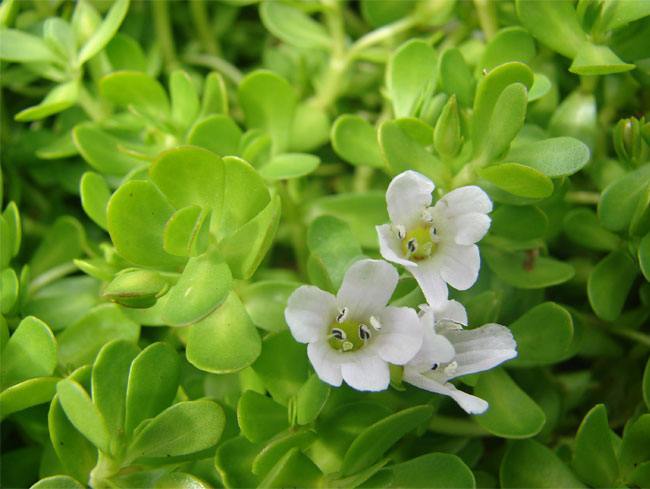When we are referring to the natural medicine for memory loss, we are simply referring to some of the best and proven natural herbs for treating memory loss without any side effects at all.
Memory loss (amnesia) is an unusual forgetfulness. You may not be able to remember new events, recall one or more memories of the past, or both.
The memory loss maybe for a short time and then resolve (transient). Or, it may not go away, and, depending on the cause, it can get worse over time.
In this article, we discuss the causes and natural medicine/natural treatment of memory loss.
Causes Of Memory Loss
Memory slips are aggravating, frustrating, and sometimes worrisome. When they happen more than they should, they can trigger fears of looming dementia or Alzheimer’s disease. But there are some treatable causes of forgetfulness. Here are six common ones.
1. Lack of sleep
Not getting enough sleep is perhaps the greatest unappreciated cause of forgetfulness. Too little restful sleep can also lead to mood changes and anxiety, which in turn contribute to problems with memory.
2. Medications
Tranquillizers, antidepressants, some blood pressure drugs, and other medications can affect memory, usually by causing sedation or confusion.
That can make it difficult to pay close attention to new things. Talk to your doctor or pharmacist if you suspect that a new medication is taking the edge off your memory.
As shown in the table below, alternatives are usually available.
| Medications that may affect memory and possible substitutes | |
| If you take these drugs… | … ask about switching to one of these drugs |
| paroxetine (Paxil) | another antidepressant such as fluoxetine (Prozac) or sertraline (Zoloft), or a different type of antidepressants such as duloxetine (Cymbalta) or venlafaxine (Effexor) |
| cimetidine (Tagamet) | a different type of heartburn drugs, such as lansoprazole (Prevacid), omeprazole (Prilosec), or esomeprazole (Nexium) |
| oxybutynin (Ditropan) or tolterodine (Detrol, Detrusitol) | other medications for an overactive bladder, such as trospium (Sanctura), solifenacin (Vesicare), or darifenacin (Enablex) |
| amitriptyline (Elavil), desipramine (Norpramin), or nortriptyline (Aventyl, Pamelor) | another type of medication, depending on why your doctor has prescribed a tricyclic antidepressant (neuropathic pain, depression, etc.) |
| cold or allergy medication containing brompheniramine, chlorpheniramine, or diphenhydramine | loratadine (Claritin) or other non-sedating antihistamines |
(Adapted from Improving Memory: Understanding age-related memory loss, a Harvard Medical School Special Health Report)
Underactive Thyroid
A faltering thyroid can affect memory (as well as disturb sleep and cause depression, both of which can be causes of forgetfulness). A simple blood test can tell if your thyroid is doing its job properly.
Alcohol
Drinking too much alcohol can interfere with short-term memory, even after the effects of alcohol have worn off.
Although “too much” varies from person to person, it’s best to stick with the recommendation of no more than two drinks per day for men and no more than one a day for women.
One drink is generally defined as 1.5 ounces (1 shot glass) of 80-proof spirits, 5 ounces of wine, or 12 ounces of beer.
Stress and Anxiety
Anything that makes it harder to concentrate and lock in new information and skills can lead to memory problems. Stress and anxiety fill the bill. Both can interfere with attention and block the formation of new memories or the retrieval of old ones.
Depression.
Common signs of depression include a stifling sadness, lack of drive, and lessening of pleasure in things you ordinarily enjoy. Forgetfulness can also be a sign of depression—or a consequence of it.
READ: Medication For Depression, Anxiety and Panic Attacks
If memory lapses are bugging you, it’s worth a conversation with your doctor to see if any reversible causes are at the root of the problem. Something like getting more sleep, switching a medication, or a stress reduction program could get your memory back on track.[Harvard Medical School]
Food That Can Cause Memory Loss
1. Tuna
Tuna is loaded with proteins and is quite beneficial for the overall health, only if it is consumed in a moderate quantity. One should have it twice a week or post-workout.
Excessive intake of tuna can cause a decline in the working of the brain as it contains high levels of mercury. Mercury can cause dysfunction of the brain. Substituting tuna with salmon will cause no harm and will boost your memory, instead.
2. Soy
Soy in any form, be it tofu or soy sauce can cause you more harm than benefit. It contains a high ratio of salt and sodium which is quite harmful to the brain. It can even lead to hypertension which restricts blood flow to the brain and causes memory loss or problems in organizational skills.
3. Orange juice
Orange juice is concentrated with high sugar which is not healthy because of multiple reasons. A lot of sugar can cause cognitive dysfunction, which can make you take bad decisions or decline your reasoning skills or ability to work in an organized manner.
4. White rice
White rice can cause problems in your mental functioning as it is quite high on carbs. It may also increase the risk of having depression. You can switch to wheat products which are better for your health as well as tasty.
Natural Medicine for Memory Loss
Try out the time-tested natural herbs and get your memory back on track.
1. Ashwagandha
An Ayurvedic medicine, this herb is a rejuvenating tonic that helps combat stress, reduce anxiety and improve cognition. This root is one of the most effective herbs for memory improvisation.

2. Bacopa as Natural Medicine For Memory Loss
Commonly known as Brahmi, Bacopa is a herb packed with multiple medicinal effects. Its effectiveness on cognition and memory cannot be ruled out, making it a perfect herbal treatment for memory loss.
3. Gingko as Natural Medicine For Memory Loss
This is a top herb when it comes to improving memory and overcoming memory loss. Gingko Biloba improves your blood flow to your brain, which allows your memory to function effectively.
Gingko Biloba can be taken in pill form, or ground up and sprinkled on food or in a beverage. It may take 2-4 months for it to create a noticeable impact on the memory, and it must be taken in a large daily dose of between 120 and 240 mg.

4. Ginseng as Natural Medicine For Memory Loss
There are many types of tea, but drinking tea with ginseng helps increase your mental function and improve your memory. People with mild dementia who took ginseng extract for 12 weeks showed major improvements in short term memory function.

Gotu kola as Natural Medicine For Memory Loss
It is a common herb in Indian medicines that stimulates blood circulation and is taken as a brain tonic. It has also been used to successfully treat neurodegenerative disorders, enhance memory, improve concentration and attention span.

Green Tea as Natural Medicine For Memory Loss
We all know Green Tea being rich in flavonoids that help reduce weight and increase immunity.
Most importantly, the catechins in it known as epigallocatechin gallate or EGCG produce the best benefits on memory, by increasing the production of new brain cells and improving memory and learning.

Rosemary as Natural Medicine For Memory Loss
Sprinkle some rosemary on your food, or just smell it. It is a herb that has carnosic acid, which goes directly to our cerebral vascular tissues, in the process dilating them and improving memory.
There are numerous health benefits of rosemary essential oil. You can use it in potpourris, aromatic baths or as perfume. This will help enhance brain function and memory.

Sage as Natural Medicine For Memory Loss
Traditionally used in Europe, the sage plant helps improve memory. Active ingredients in the leaf show antioxidant and anti-inflammatory effects which are beneficial to brain cells helping improve memory and mood.

Shankhpushpi as Natural Medicine For Memory Loss
The benefits of Indian Ayurveda cannot be ruled out. One such product is shankhpuspi which is an excellent nerve stimulant that rejuvenates brain functions.

Memory Loss Quick natural Treatment
- Include natural omega-3 fatty acids in your diet in the form of nuts, seafood, fish and flaxseed. They are known to help stimulate brain activity, increase memory and improve mental awareness. Foods rich in omega 3 stop skin ageing, as well.
- Take antioxidant supplements such as Vitamin E and Vitamin C. They will help prevent memory loss, boost cognitive function, protect the brain from minor strokes which cause dementia and reduce the risk of Alzheimer’s disease.
- A busy mind is a healthy mind. Keep your mind active by reading, playing word or number games, writing or for that matter memorizing your favourite music or poetry. This will help in strengthening your memory.
- Get regular exercise and plenty of sleep to help protect your memory. Increased oxygen flows to your brain can enhance brain chemicals and protect brain cells, thereby preventing memory loss.
When To See a Doctor
Consult your doctor if memory loss is interfering with your daily activities, threatening your safety, progressing, or accompanied by other physical symptoms.
Memory loss can be caused by a variety of diseases and conditions that may worsen if left untreated.
Your doctor is likely to ask you questions. It’s good to have a family member or friend along to answer some questions based on observations. Questions might include:
- When did your memory problems begin?
- What medications, including prescription drugs, over-the-counter drugs and dietary supplements, do you take and in what doses?
- Have you recently started a new drug?
- What tasks do you find difficult?
- What have you done to cope with memory problems?
- How much alcohol do you drink?
- Have you recently been in an accident, fallen or injured your head?
- Have you recently been sick?
- Do you feel sad, depressed or anxious?
- Have you recently had a major loss, a major change or stressful event in your life?
In addition to a general physical exam, your doctor will likely conduct question-and-answer tests to judge your memory and other thinking skills. He or she may also order blood tests and brain-imaging tests that can help identify reversible causes of memory problems and dementia-like symptoms.
You might be referred to a specialist in diagnosing dementia or memory disorders, such as a neurologist, psychiatrist, psychologist or geriatrician.
Remember, natural medicine for memory and memory exercises are the safest and effective methods to keep your mind and memory sharp.
Please if you have any question, comment below. And remember to share this post using the share button below.


